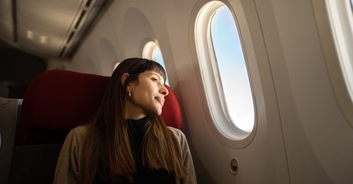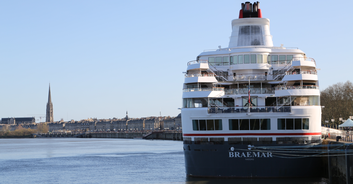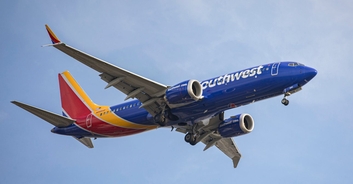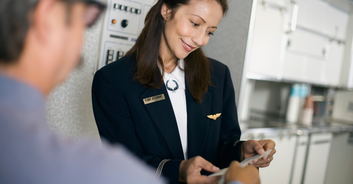There's nothing more exciting than an upcoming trip. But whether you're jetting away to some exotic locale, or taking a mini-break in a picturesque European city, one thing is for sure: the travelling portion of your vacation is seldom enjoyable.
Sure, the top one per cent are able to travel in luxury, on the exclusive other side of the grey curtain where they're served cocktails and gourmet meals. Us scrimpers and savers, on the other hand, have to contend with knocking our knees against table trays, eating food with plastic cutlery and standing in never-ending bathroom queues.
But now, this looks to be the least of our worries. One British tech startup has come up with innovative new technology that could discreetly weight passengers in a bid to cut fuel costs, and boost flight safety.

Fuel Matrix - a company founded by Roy Fuscone - believes it has the answer to slashing fuel costs and emissions, and is reportedly in talks with a number of UK airlines to introduce tactical "pressure pads" to calculate the weight of passengers as they pass through airports so the exact fuel for each flight can be accurately surmised.
The concealed pads would either be placed at check-in or self-service luggage drop-offs, in order to overcome "the issue of appearing insensitive to customers". And not only would this increase flight safety, but it could also cut down on the environmental impact of flying.
Currently, airlines estimate how much fuel they need based on average weights for each sex: 88 kg (13.8 stone) for men, 70kg (11 stone) for women and 35kg (5.5 stone) for children.
Here, one woman discusses how she was shamed on a flight over her choice of outfit:
But according to Fuel Matrix, this method is not accurate, and leads to more fuel being burnt than is needed. The company claims that this new method could amount to savings of as much as £750 million in fuel worldwide.
"More airports and airlines are moving towards self-service bag drops, where the passenger uses a screen-based system to weigh their baggage on scales and answer questions about its contents," Chief operating officer of the Berkshire startup, Nick Brasier, told the Independent. "We're not suggesting people should stand on the scales, but airports could fit 'pressure pads' in the bag-drop area in front of each screen."
"After the bag has been checked in, the system can ask, 'Are you standing on the pressure pad?'. If the passenger taps 'Yes', then the weight can be recorded and passed confidentially to the airline."
Brasier clarified that heavier passengers won't be charged under this potential scheme if airlines go ahead and adopt it at their UK locations.












